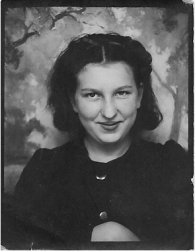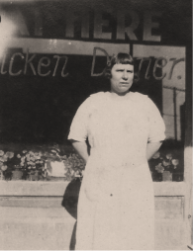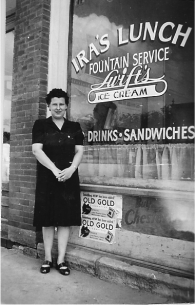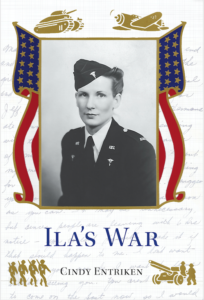This is the first of a four-part series about Pearl Harbor and the impact the bombing had on the lives of some of my family and other residents of Lincoln, Kansas, my home town.
Learning about the bombing of Pearl Harbor
Sunday, December 7, 1941
Sunday was the busiest day of the week at Ira’s Lunch, in Lincoln, Kansas, and December 7, 1941, was a special day for many in Lincoln – the second Sunday of advent. Area congregations in their respective churches watched as the second advent candle was lit and special prayers and readings were given to note the advent season. Besides lighting the candle, the Methodists sang that gorgeous advent hymn “O Come, O Come, Immanuel”.
After early morning mass large Catholic families hurried to Ira’s for breakfast. And just as the breakfast crowd finished, new customers began trickling in for an early Sunday dinner – Florence Armsbury’s fabulous fried chicken with all the fixins, mashed potatoes and gravy, corn, cole slaw, hot biscuits with real butter, and cup after cup of good strong coffee. By 12:15 P.M. the restaurant was packed and stayed that way until 1:00 p.m. when the last customers paid their tabs and hurried home for leisurely Sunday afternoon naps.
Donna Farrington, age 15, was working in the kitchen, washing mounds of dirty dishes. Her grandmother, Florence Armsbury was cleaning the huge black gas range that was spattered with grease from frying chickens all morning. They’d just turned off the radio after listening to the symphony, one of their favorite Sunday activities, on a Chicago station.
Out in front, Wava Farrington, Donna’s mother and Florence’s oldest daughter, was totaling up the receipts for the day’s sales. Wava’s husband, Nolan, was wiping off the tables and chairs in preparation for sweeping the floor. Everyone was tired and looking forward to going home.

Nolan Farrington, my grandfather, in front of the counter at Ira’s Lunch, Lincoln, Kansas. Date unknown
“We were just finishing up,” my mom told me when I interviewed her about how the family heard that Pearl Harbor had been bombed, “when Harry Liggett burst through the front door of the restaurant and said, “Have you heard the news?” We all shook our heads “no” and asked “what news?”
“The Japs,” he said. “The Japs just bombed Pearl Harbor and my brother is there.” Then he rushed back out.”
“We turned the radio back on and listened to it the rest of the day. That’s how we learned about Pearl Harbor”
Up Next:






Dear Cindy,
This looks very interesting and no doubt will become more fascinating !
I certainly intend to read your further comments relating to this “Day of Infamy” …
Thanks for sharing and best regards,
Alain (Belgium)
Hey, Alain. So nice to hear from you and thank you for your kind words. Throughout my life, my mom shared stories with me about her memories of the war. I found her story about how my family heard about the attack at Pearl Harbor quite compelling and thought that now was a good time to share it with others. I hope you’ll find the other three parts of this series equally fascinating.
Great story and photos, Cindy! Hearing the details of daily life in a small town on the day the news was delivered really brings it home. Looking forward to more. . . .
Meg, thanks for your kind words. I debated whether to include the photos because I wasn’t sure whether they would add to the story or detract from it so I’m pleased that you enjoyed them. They’re from my great great grandmother’s album. I always enjoy going through that album and looking at the old photos, even of folks I don’t know!
Cindy, Loved the pictures. You have your mother’s smile! My great-aunt’s two sons, Jim and Bob Fritchen were at Pearl Harbor. I remember stories about one of them having to swim through burning oil to get to safety. They both survived.
Kathy, thank you for saying I have my mom’s smile. I appreciate that. You have quite a story there about your cousins Jim and Bob. The idea of someone having to swim through burning oil is horrifying. What bravery! Thanks for sharing your family story.